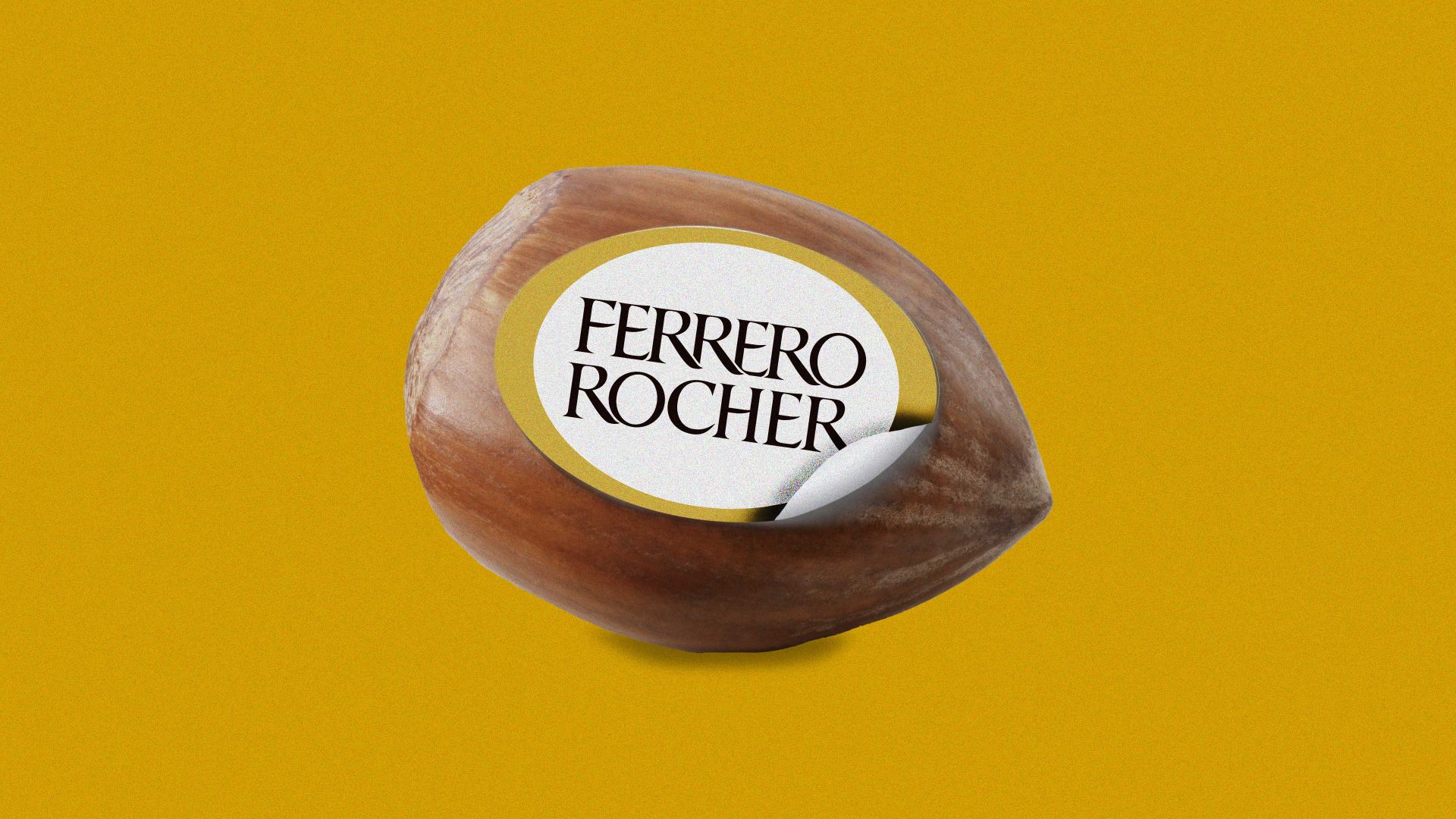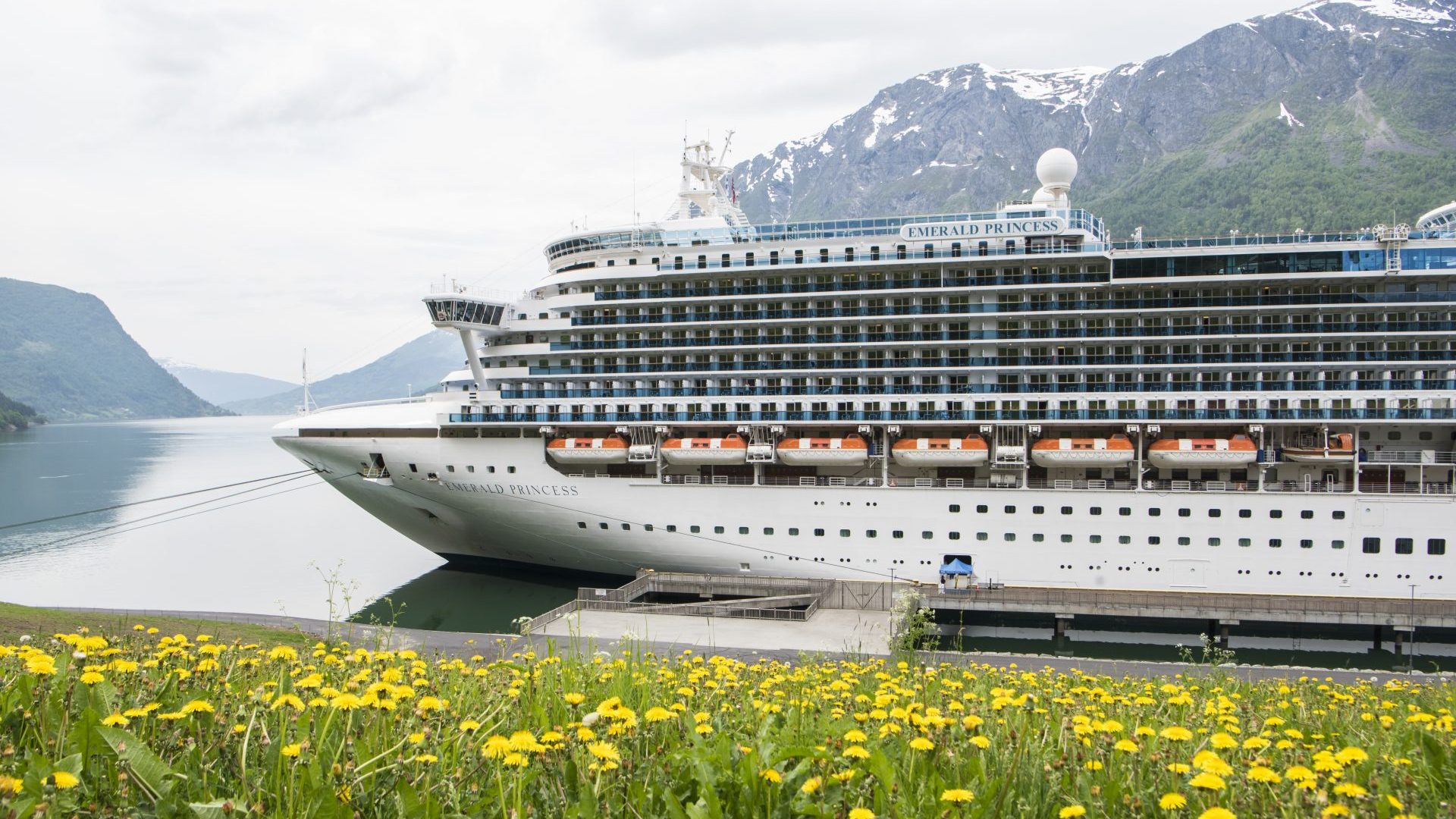Whizzing around any local supermarket in Italy at this time of year is every chocoholic’s dream. The shelves are crammed with every type of chocolate you could possibly imagine; white chocolate, dark chocolate, milk chocolate. Ever-popular brands from Mars, Lindt, and Perugia-based Baci, all the way to less favourable supermarket-own brands are right there in front of you.
There is one brand, however, that reigns supreme in Italy’s Easter egg market – and that’s Ferrero. The company is responsible for much-loved brands such as Ferrero Rocher, Kinder and Nutella, and in a recent survey here it came out on top for the most popular brand of Easter eggs.
What’s more, worldwide, the chocolate company is consistently ranked in the top 10 by revenue, coming 4th in 2022.
Ferrero’s high sales figures have paved the way for an even higher demand for hazelnuts. At present the company buys 25% of the world’s supply. A quarter of one type of foodstuff goes straight into one company’s products. Does that seem absurd or not?
It shouldn’t be surprising. Ask any Italian about their breakfast and they will probably tell you it’s Nutella and bread. Ask them what chocolate they like most and they’ll probably reply “Kinder”.
“There’s something almost nostalgic about eating both products,” my friend Serena tells me. “It’s almost like a throwback to being a child – which is a positive. I could eat it all the time.”
Not everyone thinks like Serena. In Italy, food is political, and Ferrero products are no different. Five years ago, Matteo Salvini – the head of Italy’s right wing Lega party and deputy prime minister – announced he would no longer eat the hazelnut-laced goodies.
“I’ve discovered that they (Ferrero) use Turkish hazelnuts,” he said at a rally in Ravenna. “I prefer to help Italian companies that use Italian products. I prefer eating Italian things and helping Italian farmers.”
And for once – and I stress once – Salvini might have a point. In March, Turkey’s Competition Authority closed an ongoing two-year investigation into Ferrero’s underpayment of hazelnut farmers in Turkey, the world’s largest producer. In 2023 alone, Turkey exported a whopping 280,000 tonnes of hazelnuts valued at around $1.8bn. According to reports, Ferrero has been using Turkish nuts for 30 years and currently employs 1,000 people in the country. These workers are not happy with Ferrero, particularly what they say are long hours and low pay – hence the need for an investigation.
“They have a monopoly, they have a free hand,” Aydın Şimşek, 43, a local producer, told Agence France-Presse.
“You see our conditions, how hard we work,” he added, explaining that the price he gets per kilo of hazelnuts has dropped to €2. “This year, I will not sell my hazelnuts to Ferrero.”
The competition authority said in a statement last week: “The investigation into [Ferrero’s Turkish subsidiary] has been concluded with commitments that have resolved the competition problems that were raised.”
But Turkey is just one piece, albeit the largest, of Ferrero’s hazelnut takeover. The other main countries include the US, Chile and even Italy.
I asked Ferreo for more information about their hazelnuts – what countries do they buy from and what percentage of national crop do they take? After a week of back and forth, I was told Ferrero didn’t want to tell me.
Italians will go on spreading Nutella on their morning bread – and I will probably continue to eat the stuff too. But as for the true cost of Ferrero’s demand for hazelnuts, the global consequences of that leave a much less pleasing taste in the mouth.
Jessica Lionnel is a freelance journalist based in Rome, specialising in politics, environmental matters and culture




